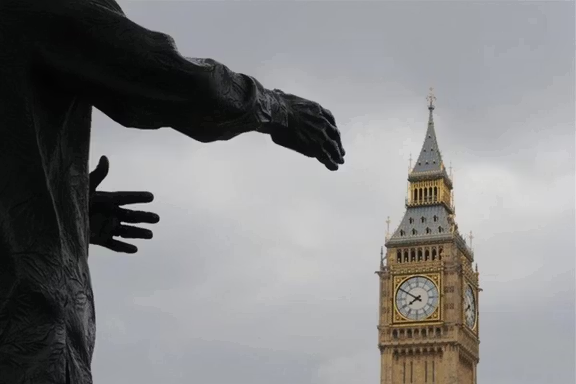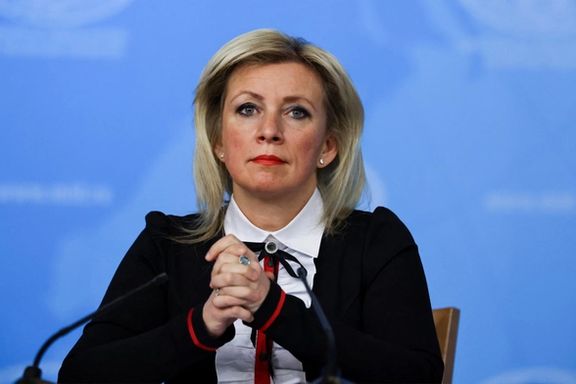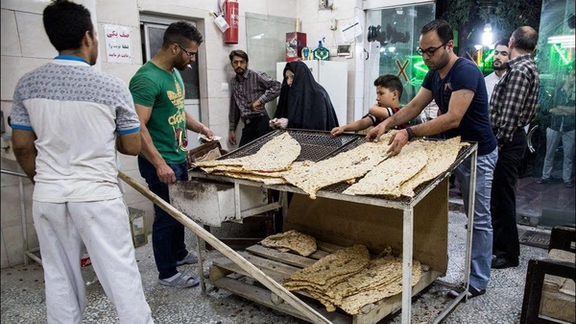The inquiry alleged Tehran’s intelligence services have orchestrated dozens of operations to surveil, intimidate, or physically harm UK-based dissidents, journalists, and other perceived critics.
Security agencies have investigated more than 20 credible threats to life linked to Iran since 2022.
“Iran represents one of the highest kidnap and assassination state threats to the UK, with the Homeland Security Group describing the threat of physical attack on individuals in the UK as the greatest level of threat we currently face from Iran,” according to the report released this week.
The tactics include assassination plots, stalking, digital hacking, threats to family members, online abuse, and coordinated smear campaigns.
One key target has been Iran International, a London-based Persian-language broadcaster.
British interior minister Yvette Cooper said in May that Iran posed an "unacceptable threat" to domestic security after authorities charged three Iranian nationals under a national security law following a major counter-terrorism investigation.
In two separate operations in May, eight men including seven Iranians were arrested by the British counter-terrorism police.
Three of the Iranian nationals were later charged with offences under the National Security Act, accused of acting on behalf of Iran’s intelligence service and carried out surveillance targeting Iran International journalists.
Broader strategy of coercion
The report warns of a broader strategy of coercion extending beyond direct threats. Iranian-linked cultural and religious centers in the UK are allegedly being used to gather intelligence on the Iranian diaspora and promote the interests of Tehran.
Kasra Aarabi, director of research on Iran's Islamic Revolutionary Guard Corps (IRGC) at US-based advocacy group United Against Nuclear Iran (UANI), points to what he calls a state-run infiltration network.
"Charities, mosques, academic institutions and cultural centers consistently carried out IRGC-linked activities on its premises,” including direct contact with some of “the most radical and extremist commanders of the IRGC.”
“The failure to address this issue is putting the UK’s national security and British lives at risk,” he told Iran International.
Journalists and women most targeted
Journalists covering Iran remain especially vulnerable, with Iran International and BBC Persian staff facing asset freezes, defamation campaigns, and threats to their families still living in Iran.
The Islamic Republic’s targeting of journalists reflects its fear of independent reporting, UK Director of Reporters Without Borders Fiona O’Brien told Iran International.
“If you're going to go to that length to try and shut something down, to try and silence people ... you must feel very threatened by that kind of information,” she said.
Female journalists reporting on protests and human rights violations have been targeted with gendered abuse, including threats of sexual violence.
The inquiry also highlights the regime’s evolving tactics, including AI-generated deepfake pornography, doctored images, and fabricated narratives used to discredit and silence.
"Impacts extend far beyond those directly targeted, creating a broader ‘chilling effect’ on entire communities and undermining fundamental rights such as freedom of expression, assembly, and association,” the committee said.
Intelligence resources stretched
The fear can be used as a method to overwhelm a country’s security apparatus.
Dr. Omid Shams, a UK-based human rights lawyer of Iranian origin, said the Islamic Republic has shifted from high-level, sophisticated operations to more chaotic, diffuse strategies that are harder for security agencies to detect.
Rather than relying solely on trained agents, Tehran increasingly uses local criminal gangs and petty criminals to carry out lower-level attacks.
“The goal,” Shams said, “is to stretch intelligence resources so thin that authorities are forced to either limit dissidents’ activities or negotiate indirectly with Iran to reduce pressure.”
UK policy still catching up
Despite the scope of the threat, the UK government has yet to formally define transnational repression in law or develop a strategy for addressing it, according to the committee, which urged the government to create a legal definition, train police, support victims, and systematically track these incidents.
Iran — alongside Russia — has been placed under the “enhanced tier” of the UK’s Foreign Influence Registration Scheme, requiring those acting on Tehran’s behalf to declare their activities. The report also calls for coordinated international pressure through the United Nations and INTERPOL.















